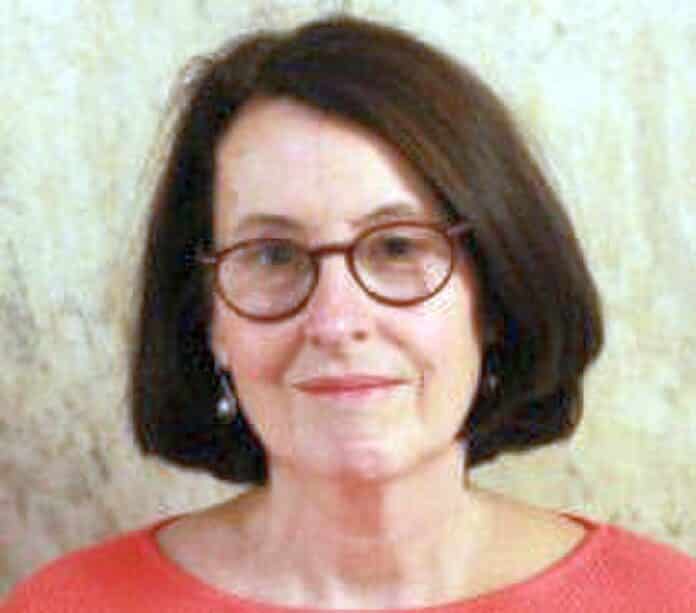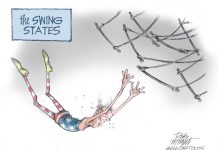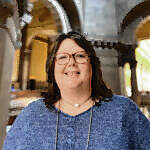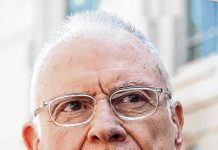In one of the holiest weeks for two of the world’s great faiths, churches and synagogues were closed.
People who might have found comfort in worshiping together were forced to pray alone.
Faith alone is no protection against the pandemic that has, as of Thursday — Holy Thursday for Christians, the second day of Passover for Jews — had infected more than 432,000 in the United States, and claimed nearly 15,000 lives. Worldwide, there are about 1.5 million known cases, with 90,000 deaths.
Nor does faith alone keep bills paid and food on the table. In the past three weeks, 16 million Americans have filed unemployment claims.
Yet the religious messages of this week may have a resonance that speak to us in ways more meaningful than in good times.
The story of Passover — Jewish families staying in their homes as death passed them by, and their liberation from slavery — and of Easter — resurrection after death — are, perhaps, just the stories of hope we need right now.
Rev. Charles Harrison, senior pastor at Barnes United Methodist Church in Indianapolis, said that like other houses of worship, he has been holding services online. Instead of losing congregants, he’s gaining them.
“We probably had over 2,000 people tuned in Sunday (April 5),” Harrison said. “When we were just having church services we may have had a couple hundred people. It has greatly expanded now.”
He sees fear and anxiety in his congregation. In fact, three members have been infected, one so seriously that he was on a ventilator. The day he could breathe without it Harrison celebrated with the family via phone calls and texts.
“God is going to see us through this,” Harrison said. “I really try to give people hope during the time when many people feel hopeless…Even in the midst of all of this, God is still with us.”
Rabbi Mike Harvey of Temple Israel in West Lafayette said that “one cannot avoid the irony of today’s situation with the coronavirus, in that we Jews, as well as all of humanity, yearn once again for certain freedoms we took for granted only weeks or months ago.”
“More than that,” Harvey said, “the Passover story tells us that we were strangers, immigrants and refugees.”
He noted 70 million refugees globally who have fled wars and persecution.
“Many Americans are learning for the first time what it means to have a seemingly immovable barrier placed between them and those that they love," he said.
In the midst of this pain, Harvey said, “It’s not particularly helpful to ask ‘Where is God?’ … As Reform Jews, we believe that we are partners with God in creation, here on this world to repair it and leave it better than when we arrived.”
The better question, he said, is “Where are we?” Humanity has a great deal of power to help one another, Harvey said, “if we would just work together and push past the boundaries we, ourselves, have created.”
Helping one another is pretty much the job description of Rev. Daniel Coffey, a Lutheran minister who is the Indiana State Police chaplain. He coordinates the state police stress management teams, and leads a network of about 50 volunteer chaplains of many faiths.
Right now, he said, most of those on the front lines of this pandemic are focused on their jobs, knowing that what they’re doing is beneficial and helpful.
“As we move forward, as people start experiencing more loss and traumatic incidents, that’s where we will be more of use and benefit. We’ll be able to hear their stories, hear their thoughts as they need someone safe to open up to.”
He’s thought about what he’d say to someone who asks: “Where is God right now?”
God, he said, isn’t in the disaster but “in the mercy and the care and the love expressed by people for other people.”
“Where is God in this? He’s in us. He’s with us,” Coffey said. “That’s kind of the message of Holy Week. God enters into this devastating situation. He knows about pain and suffering and sorrow and death. He can take every single step with us because he knows what this is all about.”
The message of both Passover and Easter is hope and life. You don’t need to be religious to need that now.
“This isn’t the end of the story,” Coffey said. “There is a brighter day coming.”
Mary Beth Schneider is an editor with TheStatehouseFile.com, a news website powered by Franklin College journalists.





